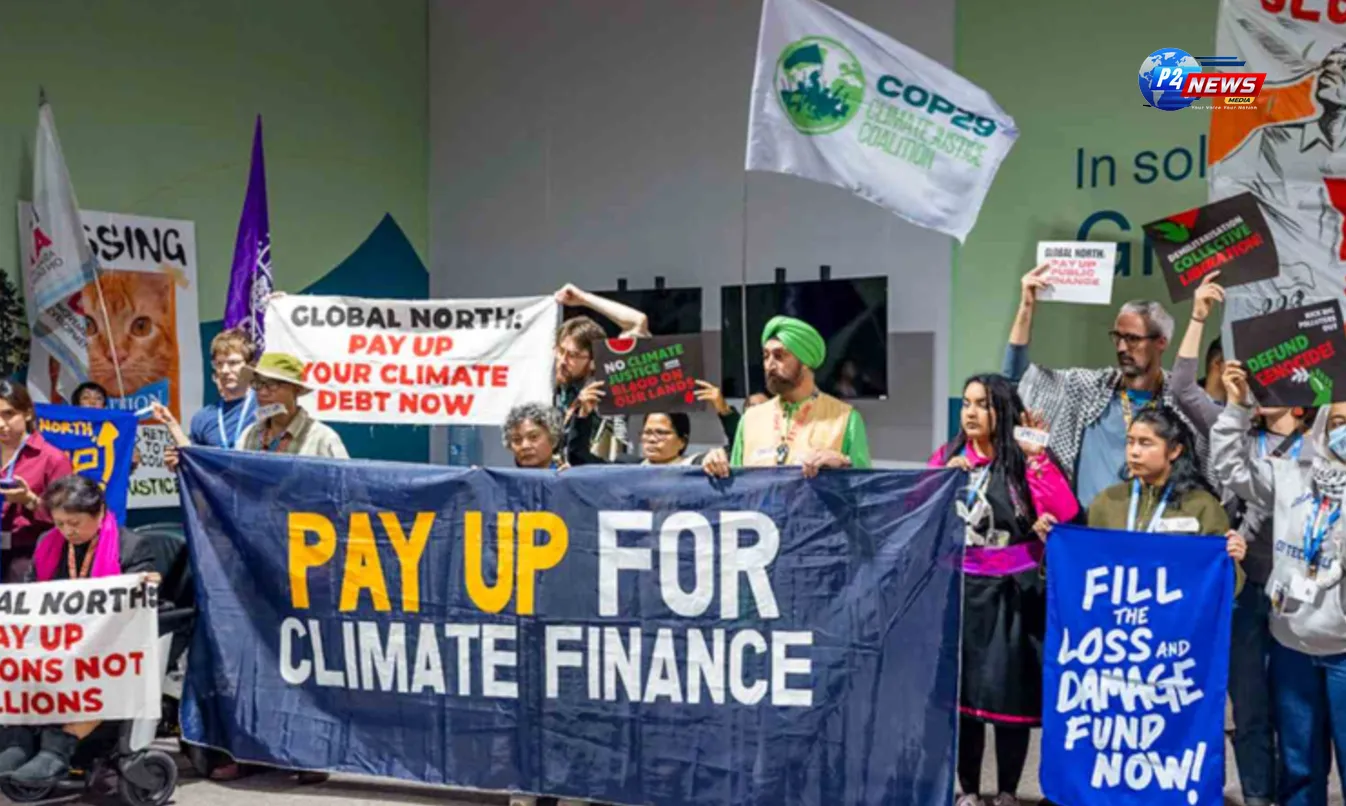Negotiators representing vulnerable nations express outrage at the UN climate conference, demanding substantial financial commitments for climate action.
Negotiators representing vulnerable nations express outrage at the UN climate conference, demanding substantial financial commitments for climate action.
At the 29th Conference of the Parties (COP29), tensions reached a boiling point as representatives from the Least Developed Countries (LDC) and the Alliance of Small Island States (AOSIS) walked out during crucial negotiations on climate finance. Their departure came as a stark protest against what they deem as an inadequate draft agreement aimed at supporting the Global South in addressing climate change.
The walkout was a powerful statement reflecting the frustration of some of the world’s most vulnerable nations regarding their exclusion from discussions that fundamentally impact their futures. “We have not been consulted on this draft, and it provides no assured financial support for us,” lamented one negotiator from the LDC group. The dissatisfaction is rooted in the belief that meaningful engagement and commitment from wealthier nations are lacking.
A statement from AOSIS emphasized, “We have withdrawn from the stalled negotiations on the New Collective Quantified Goal (NCQG), as there seems to be no progressive pathway forward.” The LDCs and Small Island Developing States (SIDS) are requesting a minimum of USD 220 billion and USD 39 billion, respectively, from the multilateral climate finance package to effectively combat climate change.
In a show of solidarity, the G77 group, which encompasses over 130 developing nations, urged that the draft must align with Paragraph 9.1 of the Paris Agreement, ensuring developed nations are held accountable for financial contributions to support developing countries. Furthermore, they have insisted on a commitment of at least USD 500 billion in climate financing by the year 2035.
Criticism of the draft was echoed across various developing nations, which characterized the proposed climate finance commitments as “grossly insufficient” and “laughable.” Action Aid expert Brandon Wu criticized the United States for its demands aimed at limiting references to key provisions that would ensure accountability in providing financial aid. “This represents the culmination of a decade-long strategy from the US to evade its responsibilities towards financing climate initiatives in the Global South,” Wu stated.
As COP29 progresses, nations grapple with the urgency of establishing a robust climate finance framework, termed as the New Collective Quantified Goal (NCQG). This framework aims to aid developing nations in reducing greenhouse gas emissions and adapting to the adverse impacts of climate change. Originally slated to conclude on Friday, negotiations extended into overtime as developed countries only offered tangible financial commitments in the final hours of the summit.
The proposed USD 250 billion from wealthier nations falls drastically short of the trillions necessary to combat the looming climate crisis effectively. Developing nations have stressed that they require a staggering USD 1.3 trillion annually starting in 2025 to sufficiently address their mounting climate-related challenges. They assert that a significant portion of this funding should come as direct public support from developed countries.
This ongoing situation underscores the deep divisions between developed and developing nations, as they strive to find common ground on the pressing issue of climate finance, pivotal to global efforts against climate change. Until a satisfactory agreement is reached, the path towards climate justice remains fraught with challenges and unmet expectations.
Like
Dislike
Love
Angry
Sad
Funny
Pray
'Trump Tracker: Tulsi Gabbard's Surprising Appointment as US Intelligence Chief
November 14, 20249th Ayurveda Day in Melbourne: A Celebration of Ayurvedic Innovations and Global Health Impact
November 10, 2024🍪 We Value Your Privacy and Experience Hi there! We use cookies to enhance your browsing experience, provide personalized content, and analyze site traffic. By continuing to use our site, you consent to our use of cookies.







Comments 0